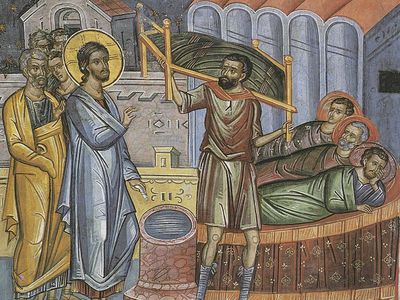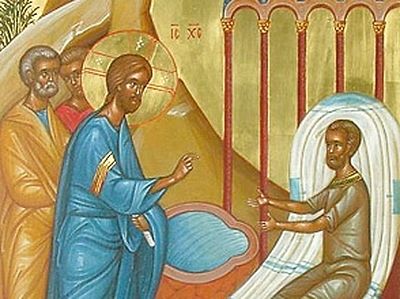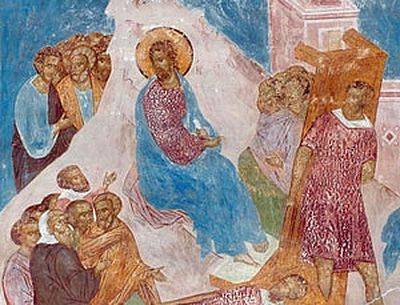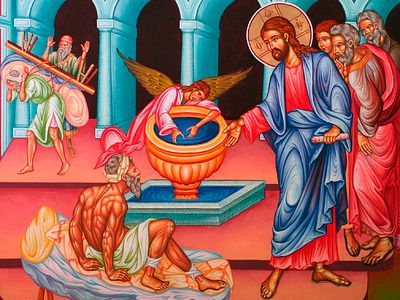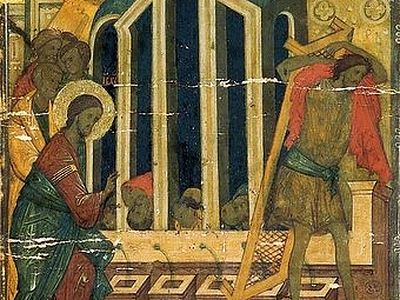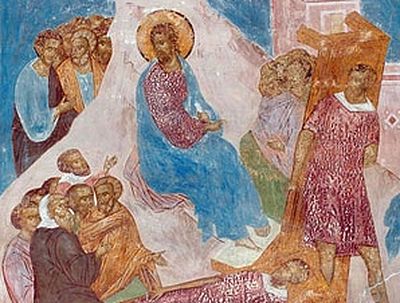The fourth Sunday after Pascha is dedicated to the Gospel of the paralytic (Jn. 5:1-15), who spent thirty-eight years by the pool of Siloam waiting for healing, and was finally delivered from his serious infirmity by the Savior Himself. That unfortunate man was physically paralyzed, while we are spiritually paralyzed to one or another degree. Clergymen of the Russian Orthodox Church Igumen Nektary (Morozov), Priest Sergei Begiyan, Priest Dimitry Fetisov, and Deacon Valery Dukhanin tell our Pravoslavie.ru correspondent how to struggle with spiritual paralysis and the lack of desire for prayer, church attendance, and participation in the Church sacraments.

“We mustn’t wait until the desire awakens to do what a Christian should, but simply take ourselves ‘by the scruff of the neck’.”
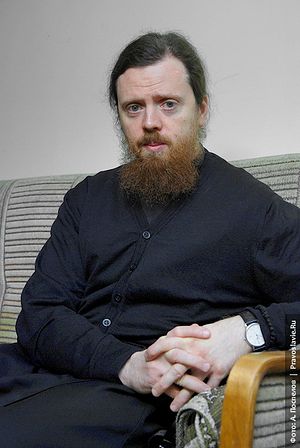 Igumen Nektary (Morozov). Photo: Anton Pospelov/Pravoslavie.ru
Igumen Nektary (Morozov). Photo: Anton Pospelov/Pravoslavie.ru
—The spiritual paralysis we are talking about is in no way a neutral state that we should make peace with when we have it. It is a sickness, and it must definitely be treated. It could be said that for modern man, this kind of paralysis is essentially characteristic: his mind and nervous system are literally exhausted by the flood of information that he indefatigably devours from the internet, television, radio, and just from the surrounding world, filled with intense images that eat away at the memory. Life now is very fast, filled with hustle-bustle and the unavoidable stresses that come with it, and all this sets the stage for our paralysis. There are many more “paralyzing” factors at work—you can’t count them all.
How can we overcome this state? We need constant labor, work on ourselves directed at acquiring an extremely valuable habit: concentrating on the primary thing, and pushing aside the secondary. We must force ourselves: We mustn’t wait until the desire awakens to do what a Christian should, but simply take ourselves ‘by the scruff of the neck’ and drag ourselves in the necessary direction. This is in fact always possible to do, with very, very rare exceptions. And it almost always brings forth its fruit, sooner or later—we are very dependent upon habit, and if we acquire the habit of overcoming ourselves, it will later turn into a kind of spiritual magic wand. And most importantly: When the Lord sees that we are not sitting back and giving up but struggling, trying if only through tiny steps but nevertheless moving forward, He Himself will help us, give us His grace, and it will fill us with that needed and indispensible strength. After all, it is He alone Who raises the paralytics from their beds, just as He did before.
Neither must we forget about the universal means for coming out of a state of paralysis: prayer. Not necessarily in church, or even standing before an icon in the icon corner (although these are very important), but even a very short but constant and sincere prayer from a heart filled with pain: “O Lord, lead me out of this state, help me become alive for You, teach me to do Your will, give me strength, integrity, and strength of soul and body…” This prayer will not remain fruitless.
***
“Attention and sobriety are the foundation of spiritual life”
 Priest Sergei Begiyan
Priest Sergei Begiyan
—How can we escape spiritual paralysis? This is a complicated question, because it is impossible to be in a constant state of tension. Even the heart relaxes partially. If we tense a muscle all the time we will eventually wear it out, and then it will be incapacitated for a long time. Even the Church rule shows that a person must have periods of increased spiritual warfare—for example, during the fast—and periods of relaxation—the sviatki (Christmastide, the fast-free period between Christmas and Theophany), Bright Week, and so on. The problem is that we often do not know how to relax in such a way that we are then able to easily return to a regime of attentive spiritual life. How can we learn to do this—relax within measure, and not draw Bright Week out to the Ascension? There is a psychological nuance here. We get so “exhausted” from spiritual labors that we arrive at Pascha crawling. We are worn out not so much from the sparse diet as from our habit of living too freely outside the fast. The fast so abruptly narrows space for our mind that during the bright festal days the mind begins to “break the fast” recklessly: we watch all sorts of TV programs or movies. There are also the short Paschal Hours that replace our usual prayer rule, and for many, all this finally leads to the realization only at dinnertime on Wednesday of the following week that it is a fast day—the first one after Pascha.
Attention and sobriety are the foundation of spiritual life. Whoever strives to live attentively, not only during the fast but all the time, will have no problem getting back on the spiritual track after the feast. This can be compared to sport. Every athlete tries to keep himself in shape even during vacations—and he doesn’t consider these minimal exercise sessions to be a burden. It is the same during an intensive training session. When your heart is ready to jump out of your chest, the trainer says, “two minutes rest.” You sit down on the ground exhausted, but in two minutes the trainer pushes you on and you get up, feeling much more rested, because you were given the directions previously that the rest will last two minutes, and no one will let you sit any longer than that. Therefore, subconsciously the muscles relax as they would after a half an hour for someone else. But if we ourselves were in control we would take a much longer break.
In Christianity this external discipline should become internal. In order not to lose that fire (Lk. 12:49), we need to continually nurse the embers. For a Christian this means reading the holy fathers. Here I would like to note that our literature can be conditionally divided into the informational, and the active. The first means all possible stories and descriptions: the lives of saints, the history of the Church, the liturgical and polemical works. The second is the direct ascetical-theological inheritance that teaches how to struggle with specific sins, with one or another passion; in general, how to lead a spiritual life. One often finds at confession that a person who is well read in informational literature does not know the ABCs of spiritual life, rules of prayer, spiritual warfare, and the rest. Of course, ascetical literature is not as easy to read as a saint’s life. You find yourself reading one page over two or three times. Reading ascetical literature is the same ascetical labor as, say, prayer. One has to force oneself to do this also. However the returns are guaranteed: be it on the tenth page or the hundredth. Without knowledge of asceticism a Christian is like a soldier who has studied a pile of literature on the automatic rifle, on battles and the heroes who used that rifle, but who never once held the rifle in his hands. And the primary ascetic book is the Instructions of Abba Dorotheos. It goes without saying that we need to be cautious about embodying in our own lives what is written, and take counsel with our spiritual instructor.
The second point is that the Christian’s gaze must be directed more inward, not outward. This enables proper prayer and self-analysis. Yes, we must be attentive, both during the fast and outside of it. The best means for this is attentive prayer. In order to pray attentively we must love to pray. This is already a great problem. For us, pray is mainly a duty; it’s hard to get up and pray—it’s just like carrying bricks. You walk away from the icons and the heart is empty: that means that you didn’t pray correctly. The fruit of correct prayer is quiet joy, peace, meekness, temperance, and love for everyone without distinction. You can read about how to pray correctly from the holy fathers. The closest teacher of prayer to us in time is St. Ignatius (Brianchaninov).
Well, and here is my final advice: everything should be done in measure. No, it is not a sin to watch a movie every now and then, or to visit friends and sing secular songs. But it is not good to watch movie after movie, or let entertainment suck you in. I am not saying that you need to stop then; I am saying that you should have stopped earlier than that. Therefore, in relaxing your spiritual muscles, do not forget to take command over yourself like an experienced trainer: “Two minutes rest.” And may God help you.
***
“Our main spiritual sickness is our damaged will”
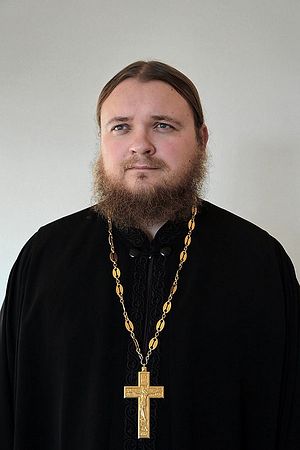 Priest Dimitry Fetisov
Priest Dimitry Fetisov
—Without a doubt, the Gospel teaching of the healing of the paralytic is not just the description of one of many incidents of Christ the Savior’s mercy to mankind, but also an allegory describing and solving the problem that remains relevant throughout all time. Thoughts about this are contained in the very text of the service for the Sunday of the Paralytic.
The image of a paralyzed man, who without any help from others has not been able for many years to enter the healing pool located only two steps away from him, portrays the main spiritual sickness that each of us suffers—our own damaged will, which as a consequence of sin has become not entirely obedient to us.
Each of us is overcome by this illness in one way or another. Even the great apostle Paul says humbly of himself, For the good that I would I do not: but the evil which I would not, that I do (Rom. 7:19). The more broken a person is by sin, the more he loses this precious and simple gift—the ability to control himself, and not remain in slavery to his own passions, weaknesses, and, in an era of informational technology, also to silly, fairy tale illusions of pseudo-relationship or seductive daydreams.
Our current situation is significantly simpler than of the unfortunate man who waited many years unsuccessfully for the miraculous descent of the angel to make the water curative. After all, we are much closer to miraculous means not only for bodily healing, but we also have communion with God Himself—the Church sacraments, which can instantly heal us spiritually, independently of our own resolve, and make us new people. But how often are we literally unable to get up in the morning for Liturgy, or motivate ourselves to repent?
Well, of course, the story of the paralyzed man is a reproach and warning to each one of us: every day we walk past scores of paralytics, to whom we should be giving more attention and encouragment to take if only a small step to Christ and His Church. But we never seem to have time for that…
Besides, if we think about it, there is a reason why the Gospels give an exact number of years—thirty-eight—during which this sick man lay helpless, having no opportunity to be healed by entering the pool of Siloam.
On the one hand, it is clear that the people around him were hard-hearted, since they did not notice him all those years and did not try to help him. On the other hand, we can come to the sad conclusion that that before his illness he may have egotistically spent his life only for himself and indulged in his passions. Apparently this sickness was also sent to the unfortunate man for his sins; after all, the Lord gave him a stern warning afterwards: Behold, thou art made whole: sin no more, lest a worse thing come unto thee (Jn. 5:14). Most likely this is why the wretch had neither family nor friends who might have given him self-sacrificing help.
***
“Could you really be lazy in the Lord’s presence?”
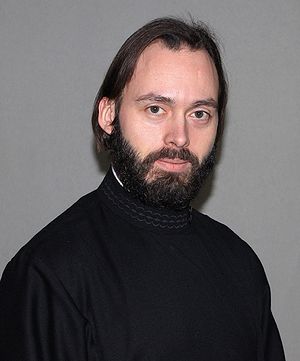 Deacon Valery Dukhanin
Deacon Valery Dukhanin
—There is saying: If you can’t run to the goal, walk to it. If you can’t walk, crawl. If you can’t crawl, then at least lie down in it’s direction. At least show the vector of your striving itself and ask God to give you strength. That is, every person has his own degree of paralysis, and everyone has his own ability to gain strength.
To talk seriously about this we first of all need to discern spiritual paralysis from physical and emotional exhaustion. When a person is in a state of nervous overexertion, if he worked a long time under wearying conditions, then of course he will have no inner strength left for his prayer rule. Even if he forces himself to read his rule, his mind will not be able to click into the prayer—he simply will not have the emotional strength. That is why it is so important to always control ourselves: Do we leave space in our lives for communion with God, or do we wear ourselves out with work for the sake of endless monetary reward, after which we have nothing left for church. In other words, a person sins not only through inactivity, but also by total immersion in worldly vanity and work, not leaving quality time for the eternal salvation of his soul.
Secondly, there is indifference to the faith, lukewarmness. A lukewarm person is spiritually sleeping, and indifferent to his salvation. He is only interested in what he sees, and is satisfied only with what he can physically feel. He may accept that there is a God, but he reasons, “He is somewhere far away, while I am on my own.” The Gospels, prayer, church services, and sacraments are all irrelevant to him. Let’s think about it: a person only runs to the doctor when he feels real pain. For example, if your tooth aches, you’ll go and have it fixed whether you like to or not. The problem is that many of our spiritual illnesses are hidden from view; or to be more exact, we try to hide them from ourselves. Supposedly everything is fine, and so we don’t really need to pray, go to church, or partake of the sacraments. Only powerful sorrows in life are capable of awakening such a person and leading him to a spiritually active life.
Thirdly, a church-going person has a particular kind of temptation—what St. John Climacus calls insensibility of soul, or morbidity of feelings. This comes on after laboring, when a person is overcome by sloth, and he does not feel a burning faith inside. Incidentally, patristic descriptions of the passion, “laziness with regard to any good work, especially to prayer,” is related to the passion of despondency. Despondency is inner apathy, lifelessness, or carelessness. It comes from loss of hope in God and from passiveness of life. A despondent person does nothing good for anyone, there is nothing self-sacrificing in his actions, no spiritual activeness, and that is why he sours. Spiritual paralysis also comes from self-pity. The person puts all attention on himself and his weaknesses, and he weakens all the more from this.
The holy fathers talk about the necessity to organize our time. Let’s say that you do not give special, determined time each day for morning and evening prayers. If you wait until your soul feels like praying, then you can say good-bye to your spiritual life forever. Our nature is sin-loving; it needs to be forced into everything spiritual. It is like the parable about Socrates, who while walking one day with his disciples, was met by a hetaera walking toward him, who said to him haughtily, “Socrates, you are supposed to be a wise man and all your disciples respect you. But if you like, I will say one word and all of them will come running after me.” Socrates replied, “There is nothing surprising about that. You call them downward, which requires no effort. I call them to something higher, and that requires great effort.” Only by enclosing ourselves within a tight framework can we achieve anything.
One elder named Fr. Joseph from the Lavra in post-war times said that he was taught to read at age seven; for seventy years now he has been reading the Holy Gospels daily, and not only has he not grown bored with it, but in reading these familiar lines he always finds deeper and deeper meaning. This is because for him the Gospels, just as prayer and church services, were direct contact with God. Could you really be lazy in the Lord’s presence?
Just imagine that you have fallen in love. We are not saying that love and falling in love are the same thing. But what a source of inspiration wells up within! What laziness could there be? All your thoughts are with the one you love and you are ready do to anything for that person’s sake. That shows that laziness is a subjective feeling without an unconditional character. For love’s sake a person is capable of changing his life and overcoming his own laziness. It is the same in spiritual life: you can see that it is not difficult to read the Gospels, to pray, or to go to church if you have a living feeling, however small, for God, for your close ones who you love and for whom you pray, and for your own eternal salvation.



